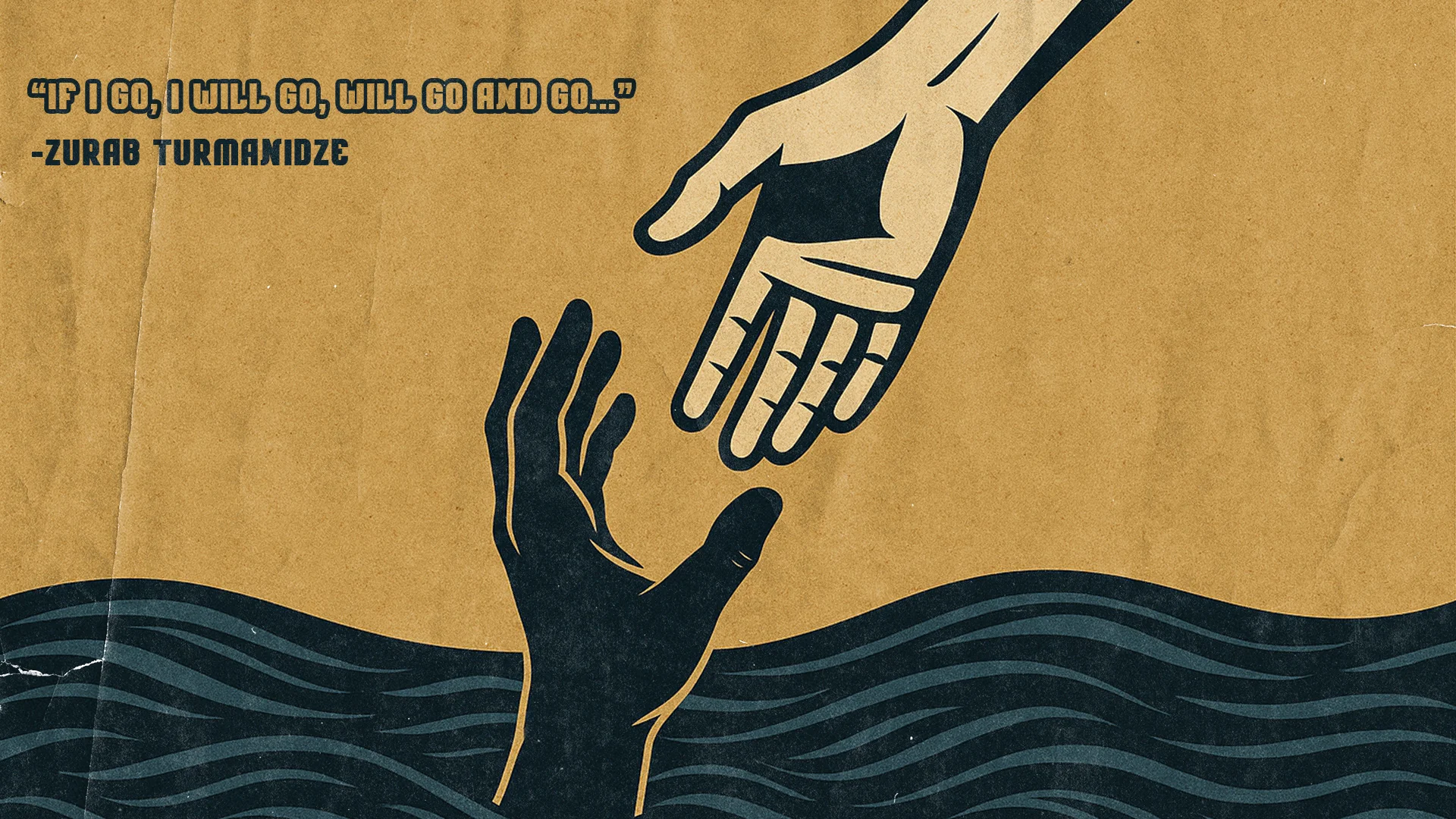Author: Zurab Turmanidze
It was a memorable day in Sachkhere – people were celebrating Akaki Tsereteli’s birthday. After the official event, we were sitting at a traditional Imeretian table with the then-mayor of the municipality, Tsezar Lashkhi.
We were in the middle of breaking bread when Mr. Tsezar received news that his eldest son, Lasha, was unwell.
But it wasn’t just illness. It turned out that he was… no longer among the living.
That day marked the beginning of a sorrow that has now lasted 25 years.
…
It was a quiet afternoon on June 21, 2000. Two friends from Sachkhere – famous parodist Obola Tsimakuridze and researcher at the Georgian Museum of Art, Lasha Lashkhi – were walking together, reminiscing, talking about the past and the future.
They had much to say and even more to remember.
Suddenly, without warning or explanation, Obola jumped up onto the concrete barrier of the embankment. Then he spoke a strange phrase, one that had long haunted him:
“If I go, I will go, I will go and go…”
And then, he vanished into the waters of the Mtkvari.
Did he jump on purpose, or did he lose balance? No one knows. But either way – he went, went, and went…
“Help !” – Lasha cried out as he leapt into the river after him, trying to save his friend. But in a matter of seconds, he too disappeared into the waves.
…
Was Lasha’s action a reflex, an instinct, or was it a conscious decision? It was more conscious than not.
In an earlier interview, Lasha had once been asked:
“What do you think is the highest human quality?”
He answered simply:
“To sacrifice yourself for a friend.”
Perhaps it was the blood of heroic Georgians – Tsotne Dadiani, Ioseb Zhordania, Grigol Peradze, Mikheil Tamarashvili – that boiled inside him in that moment. That kind of courage lives in Georgians more strongly than in most other nations.
…
Lasha’s only child, Mariam, was just 4 years old when she became an orphan. His father’s hair turned completely white. His young wife became a widow far too soon. His sisters and brother were left in deep mourning.
And yet they carry his memory like a medal – his great sacrifice shines in their hearts like a burning torch.
Lasha’s mother – a beautiful woman struck by unbearable grief – carried that torch in her soul for twenty-five years until she passed it on, silently, to her son.
…
Obola’s children – Giorgi and Nutsa – also lost their father that day.
Now the same torch glows in their hearts.
Obola himself had been a “full orphan” since childhood, having lost both parents.
…
At the place on the Mtkvari River where it all happened, a memorial plaque now marks the site of the tragedy.
…
In the village of Sairkhe, there are two special graves – those of Lasha and Obola – lying just an arm’s length apart.
Is it a ghost or is it a memory?
At midnight, they say you can still hear Obola’s voice echo:
“If I go, I will go, I will go and go…”
“Help!”—Lasha replies…
…
In the city of Sachkhere, next to the Cultural Center, stands the “Memorial of Friendship” – a powerful sculpture created by the renowned artist Beso Kusiani, who also sadly passed away too soon.
From the artwork, a hand reaches down through the waves, and another hand rises up toward it.
They are the hands of Lasha and Obola.
